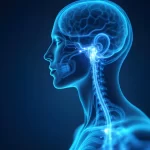Key Points
- Four key “happy hormones”—serotonin, dopamine, oxytocin, and endorphins—shape how we feel, connect, and stay motivated.
- Small, consistent lifestyle changes can naturally support balanced hormone activity.
- Understanding these hormones helps you take charge of your emotional and mental well-being.
What Really Makes You Feel Happy?
Why do some mornings feel naturally uplifting while others seem weighed down by fatigue or low motivation? The answer, science says, lies partly in chemistry—specifically, in a group of hormones and neurotransmitters known as the body’s “happy hormones.”
Serotonin, dopamine, oxytocin, and endorphins act as emotional messengers, regulating everything from mood and motivation to connection and stress response. When they fall out of balance—due to poor sleep, chronic stress, or social isolation—our emotional well-being suffers.
The good news? You can help your body restore that balance naturally.
The Modern Mood Deficit
In today’s world, many people unknowingly drain their happy hormones. Hours spent indoors, minimal sunlight, disrupted sleep, and digital overload all interfere with the body’s natural rhythm. The World Health Organization reports that depressive states and anxious thoughts have risen by over 25% since the pandemic [1].
Understanding how to nurture these brain chemicals naturally isn’t about chasing happiness—it’s about maintaining emotional resilience, sharper focus, and long-term mental health.
The Four “Happy Hormones” and How They Shape Your Mood
Serotonin: The Steady Anchor of Emotional Balance
Often called the “feel-good stabilizer,” serotonin keeps your mood grounded. It promotes feelings of calm and well-being and plays a key role in sleep, appetite, and digestion. In fact, about 90% of the body’s serotonin is produced in the gut—one reason digestive health and emotional balance are deeply intertwined [2].
How to support serotonin naturally:
- Eat tryptophan-rich foods like eggs, nuts, tofu, and salmon.
- Spend time outdoors; natural sunlight stimulates serotonin production.
- Practice mindfulness or gratitude to boost serotonin pathways [3].
Dopamine: The Drive Behind Motivation and Reward
Dopamine is your brain’s “reward signal.” It fuels ambition, focus, and that sense of satisfaction when you check something off your list. But when dopamine dips, motivation often goes with it.
How to support dopamine naturally:
- Break big goals into smaller, achievable wins for frequent boosts.
- Move your body—exercise, dancing, or even stretching supports dopamine release [4].
- Eat enough protein; amino acids like tyrosine are dopamine’s building blocks.
Oxytocin: The Hormone of Connection and Trust
Oxytocin is sometimes called the “love hormone,” but its reach goes far beyond romance. It strengthens emotional bonds, encourages empathy, and helps calm the nervous system after stress. It’s released through touch, laughter, and acts of kindness.
How to support oxytocin naturally:
- Spend quality time with friends, family, or pets.
- Give (and receive) genuine affection—like hugs or hand-holding.
- Try yoga or meditation, both linked to increased oxytocin levels [5].
Endorphins: The Body’s Natural Mood Lifters
Endorphins are the body’s built-in painkillers. They help ease stress and discomfort while producing the “runner’s high” feeling after sustained physical activity. But you don’t need a marathon to get the benefits—small bursts of joy work too.
How to support endorphins naturally:
- Do moderate exercise several times a week.
- Laugh deeply—laughter alone triggers endorphin release.
- Enjoy creative activities like painting or listening to music [6].
Finding the Balance: Why Harmony Matters More Than Perfection
No single hormone creates happiness on its own. True well-being depends on balance. Dopamine helps you chase goals, serotonin helps you stay content, oxytocin connects you to others, and endorphins protect you from stress.
When these systems work together, you experience motivation, calm, and connection in a steady rhythm. Consistent lifestyle habits—not extreme routines—are the key to maintaining that natural balance.
Five Everyday Habits to Naturally Boost Your Happy Hormones
Science suggests that small, daily actions make the biggest impact on hormone health:
- Move often: Even short walks trigger endorphins and dopamine release.
- Prioritize deep sleep: Serotonin and dopamine rely on regular, restorative sleep cycles.
- Eat for your brain: Include nutrient-dense foods with omega-3s, B vitamins, and amino acids.
- Nurture connection: Schedule time for meaningful conversations or shared experiences.
- Manage stress mindfully: Deep breathing, meditation, and gratitude help sustain serotonin and oxytocin balance [7].
When to Reach Out for Help
If you experience persistent low mood, chronic tiredness, or loss of motivation despite healthy habits, consult a health professional. Hormone imbalances can stem from deeper physiological or emotional factors that deserve proper evaluation and support.
The Takeaway: Happiness Is a Daily Practice
Your body already holds the blueprint for happiness—it just needs the right inputs. By nourishing your body, connecting with others, moving regularly, and resting well, you’re not just boosting “happy hormones.” You’re creating a sustainable foundation for emotional well-being that lasts.
The article does not in any way constitute as medical advice. Please seek consultation with a licensed medical professional before starting any treatment. This website may receive commissions from the links or products mentioned in this article.
Subscribe for Free for more insightful health articles tailored to your needs.
Sources
- World Health Organization. (2022). Mental health and COVID-19: Early evidence of the pandemic’s impact.
- National Institutes of Health. (2021). Serotonin and gut-brain communication.
- Young, S. N. (2013). How to increase serotonin in the human brain without drugs. Journal of Psychiatry & Neuroscience, 38(5).
- Volkow, N. D., & Morales, M. (2015). The brain on dopamine: Reward, motivation, and addiction. Cell, 162(4), 712–725.
- Uvnäs-Moberg, K. et al. (2015). Oxytocin: The biological guide to social connection. Frontiers in Psychology.
- Boecker, H. et al. (2008). Endorphins and exercise: The runner’s high revisited. Cerebral Cortex, 18(11), 2523–2531.
- Goyal, M. et al. (2014). Meditation programs for psychological stress and well-being: A systematic review and meta-analysis. JAMA Internal Medicine.



